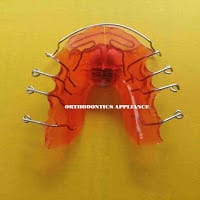In today's fast-paced world, appliances play an integral role in making our lives easier and more convenient. From refrigerators to microwaves, these essential household items help us save time and effort. However, they also demand proper care and maintenance to ensure they function correctly and more importantly, to safeguard our health. Cleaning appliances regularly is not just about keeping your kitchen sparkling; it’s about preserving your well-being. In this blog post, we'll uncover why clean appliances are crucial for your health and the hidden risks of neglecting them.
Germ Havens: The Hidden Enemy
Appliances like refrigerators, ovens, and dishwashers can become breeding grounds for germs if not cleaned regularly. A study published in the Journal of Food Protection found that kitchen appliances can harbor various pathogens, including E. coli and Salmonella. These bacteria can contaminate your food, leading to severe foodborne illnesses. Regularly cleaning your appliances helps eliminate these harmful microbes, ensuring your food remains safe to eat.
Preventing Cross-Contamination: A Key to Food Safety
Cross-contamination is a significant risk in kitchens, especially when appliances are not cleaned regularly. For instance, a dirty cutting board in a food processor can transfer harmful bacteria from raw meat to fruits and vegetables. Similarly, a neglected microwave can harbor food splatters that might contaminate future meals. By maintaining clean appliances, you minimize the risk of cross-contamination, thereby promoting safer food handling practices.
Extending Appliance Lifespan: A Cost-Saving Measure For Clean Appliances
Regular cleaning can also extend the lifespan of your appliances. Dirt and grime can cause wear and tear, leading to malfunction or the need for costly repairs. For example, grease buildup in ovens can damage the heating elements, while limescale in kettles can interfere with their functionality. Regular maintenance not only ensures the longevity of your appliances but also saves you money in the long run. In case of malfunction or repair needs, it's important to address appliance issues promptly to avoid health risks. Services like AC appliance repair can ensure your appliances are restored efficiently and safely.
Energy Efficiency: Green and Clean
Dirty appliances often have to work harder to perform their functions, leading to increased energy consumption. For example, clogged vents in dryers can reduce their efficiency, while dirty refrigerator coils can make the motor run longer. This not only leads to higher utility bills but can also contribute to a larger carbon footprint. By keeping your appliances clean, you ensure they operate at optimal efficiency, which is beneficial for both your wallet and the environment.
Allergy Aggravation: A Dusty Danger
Dust and allergens can accumulate in unexpected places, including inside your appliances. For example, the vents and coils of your refrigerator or the filters in your air purifier can trap dust mites and other allergens. If neglected, these allergens can spread throughout your home every time you use these appliances. This can aggravate allergies, triggering symptoms such as sneezing, itchy eyes, and even asthma attacks. Keeping your appliances clean helps reduce the spread of allergens, providing a healthier living environment.
Healthier Cooking Environment
Another crucial aspect of maintaining clean appliances is fostering a healthier cooking environment. A spotless kitchen with well-maintained appliances not only looks inviting but also promotes better hygiene practices. When your appliances are clean, you’re more likely to prepare food in a sanitary manner, thereby enhancing the overall quality of your meals. This preventive measure can contribute to improved digestion and overall health for you and your family.
Mold and Mildew: The Silent Invaders
Mold and mildew thrive in moist environments, making certain appliances like dishwashers, washing machines, and even refrigerators prime targets. These fungi can adversely affect your health, causing respiratory issues, skin irritations, and other allergic reactions. Regular cleaning and drying of these appliances can help prevent mold and mildew growth, ensuring they do not compromise your home's air quality.
Maintaining Clean Appliances Reduces Pest Infestations
Dirty and neglected appliances can attract pests such as ants, cockroaches, and rodents. These pests are not just a nuisance; they can also pose serious health risks by contaminating your food and spreading diseases. Maintaining clean appliances helps in keeping these unwelcome guests at bay, ensuring your kitchen remains a safe and hygienic space. Regular cleaning disrupts their potential habitats and food sources, making your home less attractive to pests.
Better Indoor Air Quality
We often overlook the impact that dirty appliances can have on our indoor air quality. Appliances like air conditioners, vacuum cleaners, and range hoods can circulate dust, mold, and other contaminants if not cleaned and maintained properly. Over time, this can degrade the air you breathe inside your home, leading to respiratory problems and other health issues. By keeping these appliances clean, you improve the air quality in your living spaces, creating a healthier environment for your household.
Conclusion
Maintaining clean appliances is more than just a chore; it's a vital practice for ensuring your health and well-being. From reducing the risk of foodborne illnesses and allergies to improving energy efficiency and extending appliance lifespan, the benefits are manifold. So the next time you consider skipping that cleaning session, remember that a clean appliance is a step towards a healthier, happier home.



